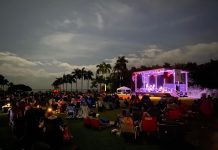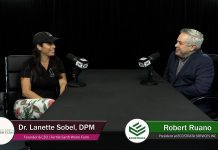|
Getting your Trinity Audio player ready...
|
The Florida black bear is a true conservation success story. The population has increased from just a few hundred bears in the 1970s to over 4,000 today, with the four largest subpopulations all showing positive annual growth rates.
There are more than 17,000 square miles of high-quality bear habitat, and almost half of it is protected through easements or public ownership. While habitat loss and fragmentation are concerns for all wildlife, estimates from FWC staff show there is enough suitable bear habitat to support our minimum and current population numbers.
When this information was presented at the commission meeting in December 2024, I knew it was time for us to act. As an avid outdoorsman, I believe in the North American Model of Wildlife Conservation, which supports the idea that our wildlife resources belong to the public, and with that comes our responsibility to manage them through science-based decision making.
Hunting is a management tool that most states with resident bear populations use, and it’s proven to help balance population growth with suitable habitat. It also provides hunters with access to the resource, so they can use the meat, pelt, fat, and other parts of any bear they harvest.
However, it’s important to acknowledge that reopening the black bear season would not eliminate human-bear conflicts and that conflict prevention will still need to continue regardless of how we vote in August.
Hunting is not only a management tool; it also directly funds conservation efforts. Each purchased hunting license is factored into a formula, which determines the amount of federal grant funding the state receives through the Wildlife Restoration Program. These funds come from excise taxes on firearms, ammunition, and archery equipment. The more Florida licenses that are purchased, the more funding our state receives for projects such as habitat conservation, which benefit both game and nongame species.
The hunt components that our staff presented in May were conservative, pragmatic, and well thought out. For example, they proposed that for the 2025-26 hunting season, there would be 187 issued permits across the four largest subpopulations, accounting for population data, growth rates, non-hunting mortality figures, and management objectives.
Each permit would allow a hunter to harvest only one bear, which could be taken at any point throughout the established season. By issuing a limited number of permits, we would give hunters the opportunity to be more selective. That means hunters wouldn’t feel pressure to harvest the first bear they see and would likely wait to harvest a male bear.
Hunting is about so much more than just the harvest. It’s a chance to connect with the natural world. As Florida grows, I want to continue to protect the outdoors and responsibly manage our wildlife so that our children and grandchildren can enjoy what our beautiful state has to offer. I will continue to listen to the experts who serve the public and conserve our natural resources, and I look forward to engaging with them and stakeholders again in August.
Rodney Barreto is Chair, Florida Fish and Wildlife Conservation Commission.
ABOUT US:
For more Miami community news, look no further than Miami Community Newspapers. This Miami online group of newspapers covers a variety of topics about the local community and beyond. Miami’s Community Newspapers offers daily news, online resources, podcasts and other multimedia content to keep readers informed. With topics ranging from local news to community events, Miami’s Community Newspapers is the ideal source for staying up to date with the latest news and happenings in the area.
This family-owned media company publishes more than a dozen neighborhood publications, magazines, special sections on their websites, newsletters, as well as distributing them in print throughout Miami Dade County from Aventura, Sunny Isles Beach, Miami Beach, Coral Gables, Brickell, Coconut Grove, Pinecrest, South Miami, Kendall, Palmetto Bay, Cutler Bay and Homestead. Each online publication and print editions provide comprehensive coverage of local news, events, business updates, lifestyle features, and local initiatives within its respective community.
Additionally, the newspaper has exclusive Miami community podcasts, providing listeners with an in-depth look into Miami’s culture. Whether you’re looking for local Miami news, or podcasts, Miami’s Community Newspapers has you covered. For more information, be sure to check out: https://communitynewspapers.com.
If you have any questions, feel free to email Michael@communitynewspapers.com or Grant@communitynewspapers.com.





